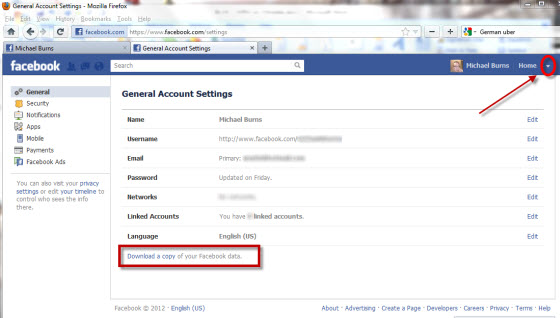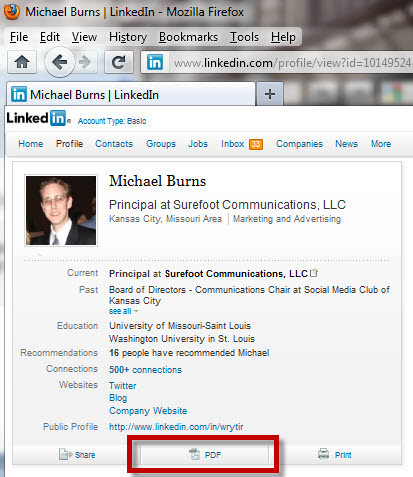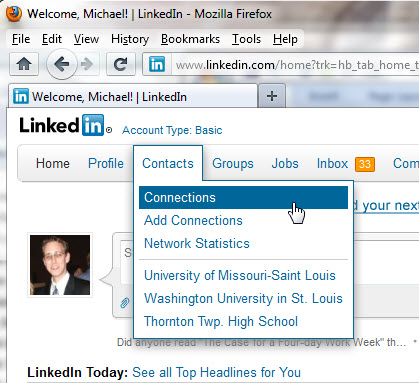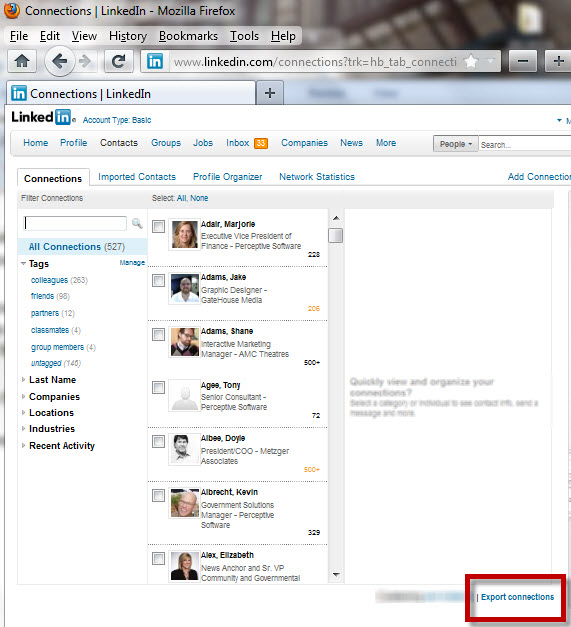 As you’ve no doubt noticed, my friends at V3 have done their fair share of spreading awareness about the anti-SOPA campaign and why this should matter to you. But even more important than that is the fact that backing up your social media account data, just in case, is never a bad idea.
As you’ve no doubt noticed, my friends at V3 have done their fair share of spreading awareness about the anti-SOPA campaign and why this should matter to you. But even more important than that is the fact that backing up your social media account data, just in case, is never a bad idea.
Still in the dark about SOPA? What’s happening is simple. This week, your Congress is reviewing two separate pieces of legislation. In the House of (ahem) Representatives, members are considering the Stop Online Piracy Act (SOPA) or H.R. 3261, authored by Rep. Lamar Smith (R-TX). Meanwhile, across the way, the Senate sits in judgment of the Protect IP Act of 2011, or S.968, a creation of Sen. Patrick Leahy (D-VT). In a nutshell, here’s why it’s important for these two measures to be defeated:
Both pieces of legislation are dangerous because of the incredibly vague and generalized language that’s used within them. For example, sites with user-generated content (Facebook, YouTube, etc.) would need to police themselves (and their users) in order to avoid legal action. Other included provisions are just as far-reaching and equally dangerous without doing much to truly prevent overseas piracy, which is what the legislation claims to do.
In just the last 48 hours, the White House has weighed in on the matter, opposing SOPA (yay!); the House appears to have shelved the bill; and Wikipedia announced it will now join other Internet juggernauts in protest by going dark on Wednesday, January 18.
Will the Internet come to a screeching halt on Wednesday? Certainly not. And while I personally support the Jan. 18 blackout, I have questions about the impact and potential backlash. Many of us rely on some or all of these sites to communicate on a daily basis, to run our businesses, to serve our clients and their businesses. It gives me more than a little case of the shakes to think about going a whole day without Google and Facebook, for sure. What about you?
More Important Than a Blackout – Losing Your Data
I left a comment on Katy’s post the other day about the importance of backing up your data if sites that you use regularly go dark. As a result, the V3 team pinged me to write a piece on the importance of backing up your data, so here I am.
Regardless of the status of the anti-SOPA blackout, backing up your online data is a smart move—and something you should do on a regular basis.
How To Back Up Your Twitter Account
To back up your Twitter account, use a service like Backupify. It’s free to those who want to backup a maximum of three social media accounts; you can add additional accounts, as well as Google Apps, for a monthly subscription fee. If you use Backupify for your Twitter account, the service will capture your timeline, DMs (sent and received), favorite tweets, followers, friends and mentions. All it takes is a quick sign up and a couple clicks of your mouse.
How To Back Up Your Facebook Account
A quick note? This is ridiculously simple. If you’re already logged into Facebook on your laptop, desktop, tablet or smart phone:
- Navigate to your account settings.
- Hover over and select Download a copy (of your Facebook data).
- On the next page, simply select the large, greenish, Start My Archive button in the center of the screen. You’ll need to choose it again one more time for confirmation.
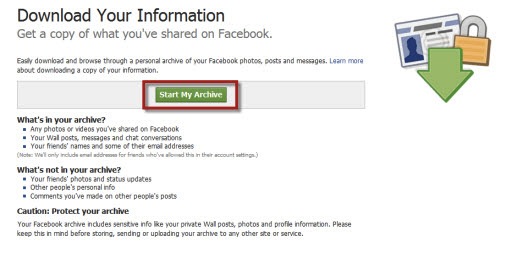 That’s it. That’s all. Depending on how many hundreds of photos you’ve uploaded through the years, in a short while, Facebook will send an email to the address you use for account notifications. That email will include a rather bland, plain-text attachment with your posts, photos, videos and possibly some “friends”’ email addresses if their profiles aren’t tightly locked down.
That’s it. That’s all. Depending on how many hundreds of photos you’ve uploaded through the years, in a short while, Facebook will send an email to the address you use for account notifications. That email will include a rather bland, plain-text attachment with your posts, photos, videos and possibly some “friends”’ email addresses if their profiles aren’t tightly locked down.
Backing Up Your LinkedIn Account
Backing up your LinkedIn profile is 100 times more complex, which is to say, still really simple! It requires two separate steps, one to capture your profile and another to export your contacts.
To back up your profile:
- Sign in to LinkedIn.com.
- Select View Profile under the Profile tab.
- Select the PDF button at the bottom of your profile window and choose the PDF’s destination on your computer. Done.
- In the main navigation bar, select Connections from the Contacts menu.
- Next, select the Export connections link.
- Finally, choose a file format for your contacts file in the Save As pop-up window and pick a destination on your hard drive.
And with that arduous click fest, you’re finished!
Regardless of what may come on Wednesday or in the future, it never hurts to back up your content! And one last thought? We’re into a new decade now. Change your passwords already and spare yourself the “I’ve been hacked” headache. Carry on, my wayward surfers.
Michael Burns is the founder of Surefoot Communications, a new media strategy and communications consultancy based in Johnson County, Kansas. A writer by trade, he has a healthy appreciation for a unique turn of phrase. He’s a loving husband, an adoring dad and a walking carbohydrate. It is unwise to stand between him and his lasagna.
